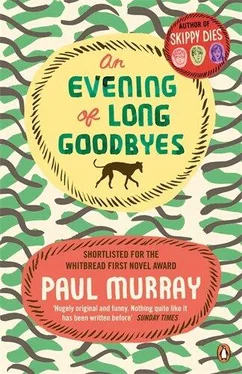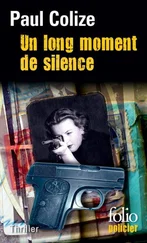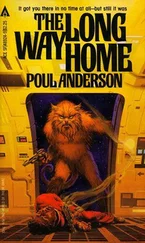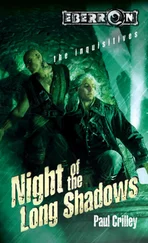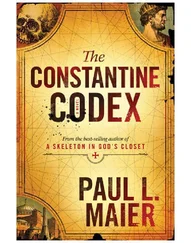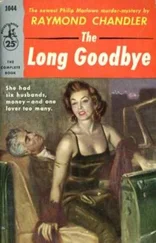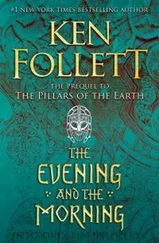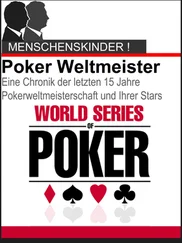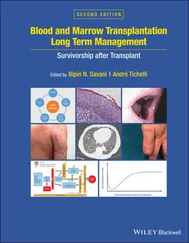She had probably gone right through the windscreen, the forensics man said; through the windscreen and over the wall into the sea. An old car like that wouldn’t give you much protection in the event of a collision. Examining the wreck, he hadn’t found any reason why it should have taken off like that — but then again it was so badly damaged it was hard to tell; and anyway these old cars always had their own idiosyncrasies. They were museum pieces, really, they weren’t meant to be driven.
Mother thrived in certain kinds of adversity. For the following week, as the rest of us stumbled around in a daze, she handled the policemen and detectives who swarmed about the house — answering their questions, providing copies of old medical reports, making sure they got lunch. When the crash was placed at roughly half past four, it was she who remembered that the taxi had been supposed to come on the hour; it was she who put forward the idea that Bel, realizing it wasn’t going to arrive in time, had in a panic decided to take the antediluvian Mercedes to the airport, only for it to spin immediately out of control on the wet grass. The police agreed subsequently that this was by far the most likely explanation.
They took statements from all of us, but most of the time stayed out in the garden, taking photographs of the garage, measuring the doorway with tape, making plastercasts of the tyre tracks that led over the lawn through splintered wood and split branches to where the car sat in a spray of ground glass and broken stonework, salt air blowing through the smashed windscreen, by the low wall that bounded the bluff from the steep drop down to the sea: only a few feet, coincidentally, from the spot where Father would take Bel and me on long-ago evenings, to look down at the waves and recite to us: Come away, O human child, To the waters and the wild .
There were divers too, with a boat, but the water at the base of the cliffs was so choppy that it was impossible to conduct a proper search. We would have to wait, they said meaningfully, and we nodded comprehension. All this time I was expecting her to walk in the door, laughing, and explain that it had all been a prank, a set-up, a misunderstanding. But she didn’t; nor did she wash up on the shore; and after a week the coroner filed a verdict of death by misadventure.
At the service at the tiny church, her absence only added to the already sharp air of unreality. There was a curious sense of rehearsal to the proceedings (but for whom? for what?); people were wary with their grief. Mother worked hard to counter this and give the occasion the appropriate gravitas. The actors in their orgy of lamentation; the college-friends from Trinity; the girls I knew from her school yearbooks, already marked a little by time; the countless oafs, oiks, nitwits and pettifoggers she had dallied with against my advice; the litany of bumptious uncles and dreary second cousins, headed by that poisonous maiden aunt of Mother’s, who only seemed to come alive at times like this; friends of the Family, with a capital F: society types one had met only once or twice, the shiny-headed fellow with all the supermarkets, a couple of the lesser Smorfetts, the Earl of somewhere-or-other, who at a do many years ago had been sick down Mother’s décolletage — she greeted every one of them with a smile and a heartfelt word of thanks; she was so good at these things.
That night she assembled the theatre people and told them that the family would prefer to be left alone for a while; and it was only when they had gone that I realized that ‘the family’ now meant just the two of us, and our slight retinue.
The house seemed to grow bigger in the silence of the succeeding afternoons, bigger and colder, no matter how many fires were lit; one felt, as one rattled purposelessly through it, a little like an Arctic explorer trekking through some icy wasteland, where the only sources of warmth were endless cups of tea, and the convalescent dog licking one’s hand. Vuk and Zoran had retired to the garden shed, where they could be heard very quietly rehearsing ‘You Are My Sunshine’; Mirela stayed in her room and did not come out. It became possible to spend the whole day without speaking to anyone.
Occasionally I’d meet Mother in her dressing gown, on the stairs or in the hall with a whiskey glass in her hand, and we’d exchange a few desultory lines about the cobwebs, or the dust. Mrs P cooked meals that nobody ate, that sat all night long on the dining-room table; she cleaned and dusted and hoovered from dawn till dusk, but it didn’t seem to make any difference. Every day more of the house was given over to shadows. Older forces were reasserting themselves now; we did little to resist.
Most of the time I’d sit up in Bel’s bedroom and flick through her yearbooks, or old photographs predating her ban. In one of them she sat with her arms thrown around the anonymous dog, as if pleading, on its behalf, for mercy; and I wondered if she’d never let go of that childhood idea of the world as a place where nothing could be held on to, where every step was on thin ice, where every sunset might be the last; if we’d never managed to convince her otherwise. Sitting there in an aureole of pale November sunshine, I’d look around the room as if seeing it for the first time, as every surface — the rosewood doors of the wardrobe, the ruched velvet of the curtains, the satin sheen of a half-dozen formal dresses — became a tableau on which her image appeared and fled from just as my eye lit on it, dancing capriciously from point to point until I was too dizzy and tired to chase it any more and I laid my head down on the pillow, with the sunshine like a friendly palm on my cheek, and the smell of her so close; and then I would smile, for how silly it seemed, here among her warm sheets, that she could be gone, how like a storybook with the wrong ending, here on the mattress that was the raft that we had sailed on so many Sunday afternoons, down tumbling rapids and shady meanders, to St Petersburg and Timbuktu, to Narnia and Never-Never Land…
Until one day I went in, and the things had gone back to being merely things. It was as if overnight some spirit had left them; I found myself in a roomful of anonymous objects, a rabble of wood and plastic that no longer had anything to do with anything, waiting to be gone through and put in boxes, or thrown away. That was when I realized I had to go.
By chance, the day I chose to return to Bonetown was the day the builders came in bulldozers to demolish Old Man Thompson’s house, and found Olivier’s body hanging from the remotest end of the verandah. He had been there for some time; the auction-house people must have missed him when they were clearing out the interior.
The builders had to cut him down. They were rattled and they left off work for the day to come in and sit in our kitchen. They hadn’t heard about Thompson’s death, or the rival claim for the estate that Olivier had refused to challenge. I explained it to them and they shook their heads. ‘It would have had to’ve been knocked down whether your man had sold it or not, Mr H. That place is only waitin for a stray spark to go up like a matchbox. You know the way with these old places. Just to put in new wiring you’d have to rip up so much of it it’s hardly worth it. Cheaper in the long run to knock it all down and start again. No point gettin upset about it.’
The new development was being called Romanov Arbour: five luxury residences with gym and sauna, each one named after a different Russian writer: the Pushkin, the Tolstoy, the Gogol and so on. They had already been pre-sold for record sums.
‘Computer money, Mr H,’ the builders said. ‘Give these people a place with an electric fence and a foreign-sounding name and the sky’s the limit.’ They didn’t like it, but as they said, you couldn’t get too upset about these things: especially being a builder, especially in Dublin. Anyway, this was their last job. They had saved enough money to get out of the rat race.
Читать дальше
